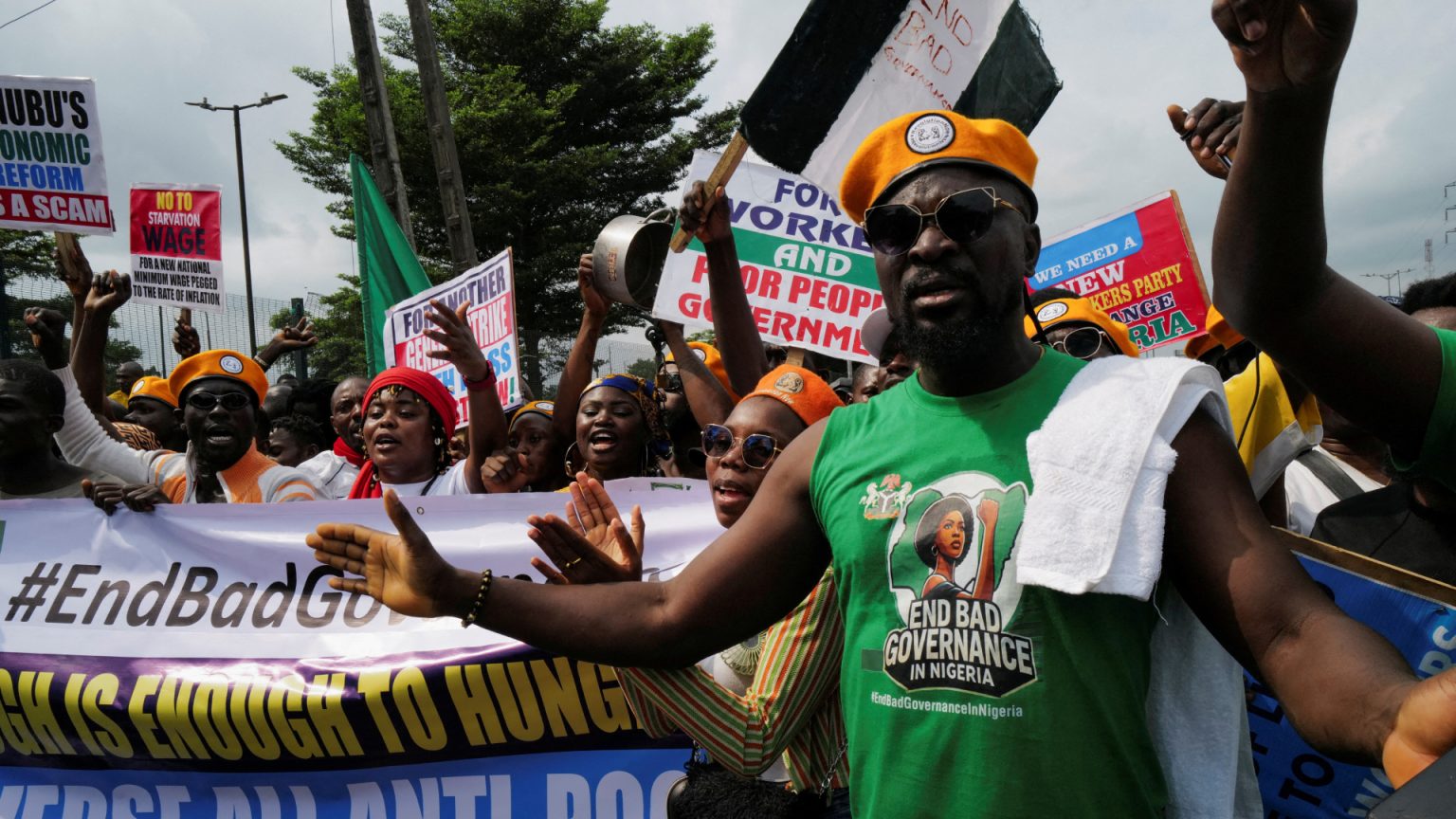Nigeria is currently facing a severe economic crisis, with soaring inflation, a devalued currency, and tripled fuel prices following President Bola Ahmed Tinubu’s economic reforms. Daily life has become a struggle for survival for many Nigerians, with the government claiming no lives have been lost in the protests, but Amnesty International reporting 22 deaths among protesters. This has led to nationwide protests, with voices from every layer of society expressing their frustration and anger at the government’s handling of the crisis.
As similar frustrations spread across Africa, analysts are warning of a potential “African Spring”, reminiscent of the Arab Spring that swept through the Middle East several years ago. The economic hardships faced by the Nigerian people have sparked widespread protests and calls for change, with many demanding accountability from the government and solutions to the economic crisis. The protests have brought together people from all walks of life, with each voicing their concerns and demanding change.
In this episode of Talk to Al Jazeera, Ahmed Idris explores the realities on the ground in Nigeria, speaking to protesters, government officials, and analysts to gain a better understanding of the situation. The economic crisis has had a profound impact on the daily lives of Nigerians, with many struggling to make ends meet and facing uncertainty about the future. The government’s handling of the crisis has been heavily criticized, with many accusing them of not taking the concerns of the people seriously.
The protests in Nigeria are part of a larger trend of dissatisfaction and frustration with governments across Africa, as economic hardships and political corruption continue to plague the continent. The Nigerian government’s response to the protests will be closely watched by other African nations facing similar challenges, as the outcome could have far-reaching implications for the region. The protests have highlighted the need for meaningful and sustainable solutions to the economic crisis, as well as for greater accountability and transparency from governments across Africa.
Despite the challenges facing Nigeria, the protests have also sparked a sense of unity and solidarity among the Nigerian people, with many coming together to demand change and a brighter future for their country. The voices of the protesters reflect the diversity and resilience of Nigerian society, as people from all backgrounds unite in their calls for justice and accountability. The protests have shown that the Nigerian people are not willing to accept the status quo and are determined to fight for a better future for themselves and future generations.
As Nigeria grapples with its economic crisis and political uncertainty, the protests serve as a powerful reminder of the importance of listening to the voices of the people and working towards meaningful change. The African Spring may be on the horizon, but what comes next will depend on how governments respond to the demands of their citizens and whether they are willing to prioritize the needs of the people over their own interests. Nigeria’s future hangs in the balance, but the spirit of unity and determination shown by the protesters gives hope for a brighter tomorrow.













